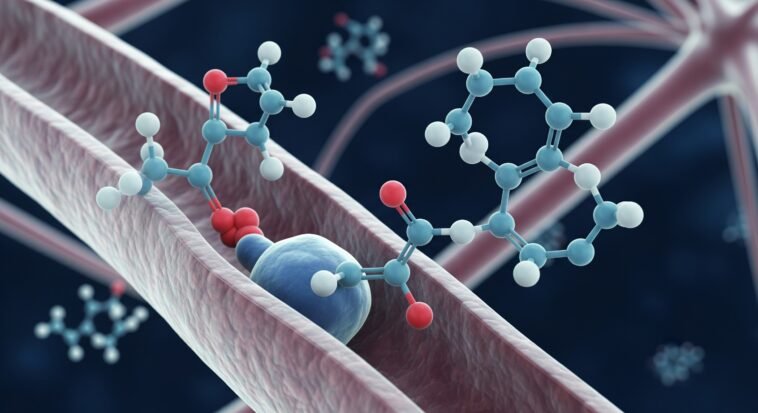
For years, serotonin’s been hyped as the “happiness chemical”—like it’s some magic mood switch.
Feeling down? Just boost your serotonin, right? That’s what ads, blogs, and even some doctors have been saying forever.
But here’s the plot twist: new research says that link between serotonin and depression? Kinda shaky.
Turns out, low serotonin isn’t the main villain in the depression story.
Scientists haven’t found solid proof that low levels cause depression at all.
Basically, blaming serotonin for all our sad days might be like blaming your Wi-Fi when your laptop’s just dead. It’s more complicated—and way more interesting—than the old narrative.
The Birth of the Serotonin Myth
Okay, quick time-travel to the 1960s: scientists tossed out an idea that low serotonin = depression.
It was catchy, simple, and sounded science-y enough to stick.
This became known as the “serotonin hypothesis.”
The only problem? It wasn’t backed by strong evidence.
But that didn’t stop it from going mainstream. Enter: Big Pharma.
Drug companies saw a golden marketing opportunity—“Your brain’s low on serotonin?
Here’s a pill to fix that.” Cue decades of ads, antidepressants, and a serotonin-centered view of depression.
Even now, many people still think depression is just a “chemical imbalance,” mostly because that idea was easy to sell.
But leading psychiatrists say the serotonin-depression link was more branding than biology.
It shaped how we talk about mental health—and not always in a good way.

Myth #1: Serotonin is the “Happiness Hormone”
Perhaps the most pervasive myth is that serotonin directly creates happiness.
While serotonin is We’ve all heard it: serotonin is the “happiness chemical.”
Like it’s a tiny party planner in your brain. But that’s a myth.
Serotonin isn’t a happiness button—it’s more like a manager keeping things balanced behind the scenes.
Yes, it plays a role in mood, but also in stuff like sleep, digestion, and blood clotting (yep, it’s multitasking hard).
And get this: around 90% of your serotonin lives in your gut, not your brain.
So if anything, your stomach might be running the show.
Think of serotonin less like a Disney fairy sprinkling happy dust, and more like the thermostat—it helps keep your emotional climate steady.
Happiness? That’s a team project, and serotonin’s just one player.
Myth #2: Low Serotonin Causes Depression
This one’s been around so long, it’s basically the boomer of mental health myths.
For decades, people thought depression was just a “chemical imbalance”—low serotonin causing all the sadness. Simple, right?
Except… not true.
Multiple deep-dive studies (shoutout to Professors Joanna Moncrieff and Mark Horowitz from UCL) found no solid proof that low serotonin actually causes depression.
In fact:
- Depressed folks don’t consistently have lower serotonin than others
- Lowering serotonin in healthy people doesn’t magically make them depressed
- The serotonin-depression link? It’s way more tangled than we thought
So what’s really going on?
Depression is a complex mix—genetics, trauma, stress, environment, and more.
SSRIs (those “serotonin-boosting” meds) do help some people, but not because they “fix” a serotonin shortage.
Scientists are still figuring out how they work.
Myth #3: You Can Simply “Boost” Serotonin for Better Mood
Scroll through Instagram or wellness TikTok, and you’ll see it: “Eat this, take that, boost your serotonin!” Like it’s a mood smoothie.
But the truth? It’s not that simple.
Yes, things like exercise, sleep, and connection can influence how your brain handles serotonin—but it’s not a straight line from “more serotonin” to “less sad.”
Fun fact: studies show a correlation between serotonin activity in a certain brain region (the right anterior cingulate cortex, if you wanna get nerdy) and mood.
But correlation ≠ cause. You can’t just sprinkle serotonin like fairy dust and expect instant happiness.
What actually helps?
- Exercise: Not just for serotonin—it boosts endorphins, helps you sleep, and makes you feel like a legend for showing up.
- Good sleep: Your brain needs it to reset all its chemical balances, including serotonin.
- Social connection: Text a friend, hug your dog, complain about your day—human contact is powerful.
- Mindfulness & therapy: Turns out, changing your thoughts really can change your brain (science backs this, not just your yoga instructor).

Myth #4: SSRIs Work by Correcting Serotonin Imbalances
This one’s everywhere: “SSRIs work by correcting your serotonin imbalance.” Sounds neat. Too bad it’s not true.
SSRIs (Selective Serotonin Reuptake Inhibitors) do increase serotonin in the brain—for a while. But that doesn’t mean they’re fixing a “deficiency.”
In fact, long-term SSRI use might reduce overall serotonin levels, according to some studies.
So how do they work? Honestly, we’re still figuring that out. Current theories suggest:
- They promote neuroplasticity (your brain gets better at adapting)
- They affect other neurotransmitters too—not just serotonin
- They reduce inflammation in the brain
- They change brain connectivity, like how different regions “talk” to each other
SSRIs can help people. But it’s not because they refill your serotonin tank—it’s because they shift how your brain functions over time.
Myth #5: Serotonin Only Affects Mood
Serotonin isn’t just your emotional DJ.
It’s a multitasker, running ops all over your body like a biochemical Tony Stark.
Here’s what it really does:
- Gut stuff: Most of your serotonin lives in your gut. It helps move things along (literally).
- Sleep: You need serotonin to make melatonin. But too much can mess with REM sleep.
- Appetite: Helps tell your brain when you’re full or still hungry.
- Blood clotting: Your platelets use it to plug up cuts.
- Bone health: Plays a role in keeping your skeleton solid.
- Heart stuff: Helps regulate blood flow and heart rate.
So yeah, serotonin isn’t just about vibes. It’s got a full résumé.
Which explains why meds that mess with serotonin can have weird side effects—from nausea to sleep issues to appetite changes.
The Dangers of Oversimplification
Okay, so believing serotonin is the whole story behind depression isn’t just some nerdy science debate—it actually causes problems in real life.
Here’s how oversimplifying it can mess things up:
Delayed treatment
If you think feeling better is just about “boosting serotonin,” you might waste time on mood teas, supplements, or shady ads that promise quick fixes.
Meanwhile, therapy, support, or proper diagnosis gets put on the back burner.
Medication expectations
If you expect antidepressants to “fix your brain’s chemistry” like a Tylenol fixes a headache, you might be let down.
When the meds don’t magically fix everything, people stop taking them—or think they’ve “failed” treatment. That’s rough.
More stigma, not less
The whole “chemical imbalance” story was meant to reduce stigma, but it can backfire.
If your brain is “broken,” it sounds like there’s something wrong with you. And that makes people feel even worse.
Neglect of other factors
Mental health isn’t just chemicals—it’s also your relationships, trauma, stress, sleep, income, identity, and more.
If we laser-focus on serotonin, we risk ignoring the stuff that actually drives long-term healing.

What Science Really Says About Mental Health
So, if the serotonin myth is busted—now what? Should we panic? Nope. This is actually good news.
It means we can finally stop chasing one-size-fits-all fixes and focus on what really helps.
Here’s the real deal:
Mental health isn’t just about brain chemicals—it’s a tangled mix of genetics, environment, thoughts, trauma, relationships, sleep, stress, and whether or not you’ve eaten something green in a week.
It’s messy. It’s human.
The modern understanding:
It’s complicated—in a good way
Mental health isn’t just brain chemicals. It’s this wild combo of genetics, your environment, past experiences, stress, relationships, even how much you’ve slept this week.
Think less “one switch,” more “control panel with a bunch of dials.”
One-size-fits-all? Nope.
What helps one person might do nothing for someone else.
That’s not failure—it’s just biology being human.
Recovery is real, but it looks different for everyone. Some people do well with therapy.
Others need meds, or both, or neither.
It’s not all about pills
Pharmaceuticals can help, but they’re just one tool in the toolbox.
Science shows a mix of treatments is often most effective.
Evidence-Based Treatments:
- Cognitive Behavioral Therapy (CBT) – Think of this as brain training for unhelpful thoughts. It’s like rewiring your mental playlist.
- Interpersonal therapy – Focuses on your relationships and how you connect with people. Basically, emotional social skills coaching.
- Mindfulness-based stuff – Helps you notice your thoughts without letting them hijack your day. Less spiraling, more grounding.
- Lifestyle interventions – Exercise, sleep, nutrition, stress management—yeah, your brain loves that stuff.
- Social support – Real talk: human connection heals. Whether it’s friends, support groups, or your dog—relationships matter.
Conclusion
For years, we’ve blamed low serotonin for depression—like it was the bad guy in every mental health plot.
But science says otherwise: people with depression don’t consistently have lower serotonin, and reducing serotonin doesn’t reliably tank anyone’s mood.
But don’t panic—this doesn’t mean neuroscience is useless.
It means we’re finally getting a clearer picture.
Mental health isn’t about just brain chemicals.
It’s about life. Genes, stress, relationships, trauma, habits—it all matters.
So, no magic pill, but also no dead ends.
The real path to healing is through good science, personalized care, and ditching oversimplified myths.
The more we learn, the better we get at supporting real human wellbeing—not just chasing happy chemicals.complexity of human psychology.
In letting go of these myths, we gain something far more valuable – a deeper, more accurate understanding of what it means to be human.



